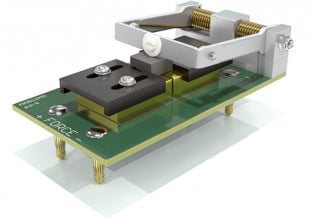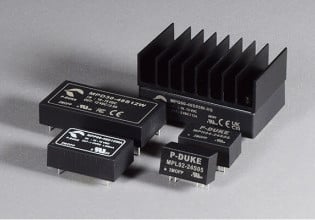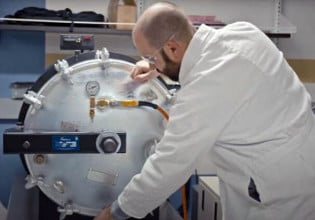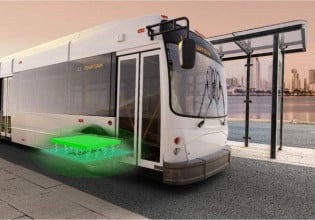Wurth Electronik Starts ECSEL Joint Undertaking Project APPLAUSE
This article highlights Wurth Electronik joint undertaking project with APPLAUSE – an ECSEL project for advanced packaging for low cost manufacturing.
Würth Elektronik starts APPLAUSE – an ECSEL Joint Undertaking project – focuses on developing advanced packaging for photonics, optics and electronics for low cost manufacturing
Würth Elektronik is part of a consortium of 31 European electronics packaging, optics and photonics key players, leading equipment suppliers and testing experts launched a new project, “Advanced packaging for photonics, optics and electronics for low cost manufacturing in Europe,” simply called APPLAUSE. The project fosters the European semiconductor value chain by building new tools, methods and processes for high volume manufacturing. The 34M€ total budget for the three-year project is co-funded by Horizon 2020 and national funding agencies and industries, as a part of the Electronics Components and Systems for European Leadership Joint Undertaking (ECSEL JU). The APPLAUSE project is an innovation activity (IA) of the European Commission in the field of electronics research.
The APPLAUSE project is coordinated by ICOS Vision Systems N.V. (Belgium), a division of KLA Corporation, and has partners from 11 countries, including 10 large enterprises, 11 small and medium-sized enterprises (SMEs) and 10 research and technology organisations. “In addition to achieving the overall goals of APPLAUSE, Würth Elektronik has focused on further developments in the areas of electronic packaging and individual sensor systems”, explains Dr. Jan Kostelnik, Head of Research and Development at Würth Elektronik Circuit Board Technology (CBT). The topics will be piloted in six use cases, each having an industrial end user.
The strategic, high level objectives of APPLAUSE include amongst other things developing new tools, methods and processes for automated mass manufacturing and advanced packaging for the semiconductor, optics and photonics industries. Furthermore, these six specific use cases will introduce innovative packaging and production concepts to the optics and photonics industry. The aim is to increase both the global market share and the competitiveness of the semiconductor industry in Europe, particularly in the sectors of production equipment, packaging and assembly.
“We are really pleased that with our professional expertise in the area of PCB-based systems utilising TWINflex®, TWINflex®-Stretch technologies and Wire-Bonding we are able to contribute to the international research project APPLAUSE”, says Dr. Jan Kostelnik. “Today’s consumers demand smaller devices, more functionality and outstanding reliability. We would like to continue to focus on these demands in the future and therefore bring our many years of experience to the project APPLAUSE in order to develop innovative customer solutions”, Dr. Jan Kostelnik continues.
Würth Elektronik participates in two of the six use cases. The first use case has the goal to enable cost-effective thermal imaging devices. The second use case deals with the development of heart-monitoring systems in the form of a stretchable plaster.
The expected project impacts may include an increase in revenue for the project partners, exceeding 300M€, by 2025. The new technologies developed in the project have the potential for increased market share with additional access to new market segments for the industrial partners.
About Würth Elektronik Circuit Board Technology (CBT)
Würth Elektronik Circuit Board Technology was founded in 1971 and has established itself as one of the leading PCB manufacturers in Europe. Developers are able get standard circuit boards, new and innovative technologies and even complete system solutions all from one source. Here at Würth Elektronik, we cover the entire product life cycle, from the initial idea for a design, for example during early R&D projects, to the production of prototypes on the online shop WEdirekt and finally, manufacturing of medium and large volumes in Germany or Asia. Knowledgeable specialists are not just located at our German plants. Internationalization is an important strategic aspect for Würth Elektronik. We have numerous sales teams set up across many European countries.
Every day more than 120 new PCB designs enter our production. We have over 4,700 customers, ranging from large corporations to one-man designers. In addition to the personal care provided through our dense network of over 100 internal and external sales people, customers also have the option to purchase printed circuit boards online through the easy to use online shop, WEdirekt.
About the Würth Elektronik use cases
Cost-effective thermal imaging devices
The thermal IR sensor developed in APPLAUSE exceeds the state of the art in terms of both cost savings and higher reliability. Many of the current high-performance thermal imaging cameras are used in monitoring systems and sensor applications. These cameras need cooling, are relatively large and carry a
high price, with a cost of several thousand euros per unit. High-performance cameras are very expensive and export restricted.
Heart monitoring systems in the form of a stretchable plaster
This use case addresses a number of technical challenges relating to flexible electronics, ductile cables and cost-effective packaging of single-use multi-parameter sensors. Currently there are various plasters and other portable devices utilised in heart monitoring, however, these devices are often inflexible and bulky. APPLAUSE will develop a flexible and elastic plaster capable of multimodal measurement of heart activity. This type of sensor would offer significant advantages in the workflows associated with infection control, hospital inventory management and patient care.
About electronic packaging
Electronic packaging is the design and production of enclosures for electronic devices ranging from individual semiconductor devices up to complete systems such as a mainframe computer. Packaging of an electronic system must consider protection from mechanical damage, cooling, radio frequency noise emission and electrostatic discharge.
About APPLAUSE

APPLAUSE has received funding from the ECSEL JU under grant agreement No 826588. The JU receives support from the European Union’s Horizon 2020 research and innovation programme as well as Belgium, Germany, Netherlands, Finland, Austria, France, Hungary, Latvia, Norway, Switzerland and Israel.
About ECSEL JU

The “Electronic Components and Systems for European Leadership” (ECSEL) is a Joint Undertaking established in June 2014 by the European Union Council Regulation No 561/2014. The ECSEL Joint Undertaking - the Public-Private Partnership for Electronic Components and Systems – funds Research, Development and Innovation projects for world-class expertise in these key enabling technologies, essential for Europe's competitive leadership in the era of the digital economy. Through the ECSEL JU, the European industry, SMEs and Research and Technology Organisations are supported and co-financed by 30 ECSEL Participating States and the European Union. A total of approximately 346M€ European and national grants have been awarded to proposals with total eligible costs of about 748M€ arising from the ECSEL JU, making another step forward in the 5B€ programme to be supported by ECSEL JU.
Project partners
ICOS Vision Systems N.V. (a division of KLA Corporation), Afore Oy, ams AG, Almae Technologies, Besi Austria GmbH, Besi Netherlands BV, DISCO HI-TEC
EUROPE GmbH, EV Group E.THALLNER GmbH, JSR Micro NV, Pac Tech - Packaging Technologies GmbH, SEMILAB FELVEZETO FIZIKAI LABORATORIUM RESZVENYTARSASAG, VAISALA Oyj, Würth Elektronik GmbH & Co. KG, Albis Optoelectronics AG, ADVANCED PACKAGING CENTER BV, Cardiaccs AS, DustPhotonics LTD, Oy Everon Ab, Integrated Detector Electronics AS (IDEAS), Nuromedia GmbH, OSYPKA AG, Precordior OY, RoodMicrotec GmbH, Aalto University, CSEM SA, Institute of Electronics and Computer Science (EDI), Fraunhofer Institute for Electronic Nano Systems (ENAS), Fraunhofer Institute for Microelectronic Circuits and Systems (IMS), Fraunhofer Institute for Reliability and Microintegration (IZM), INTERUNIVERSITAIR MICRO-ELECTRONICA CENTRUM (IMEC), STICHING IMEC the Netherlands, University of Turku, University of South-Eastern Norway (USN).






